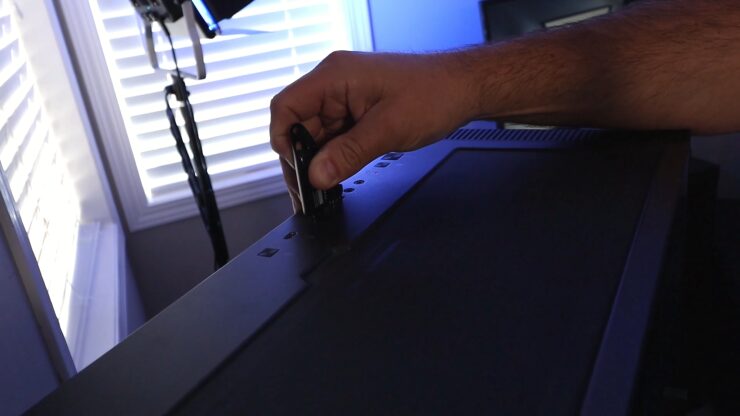
Coordinating Locum Providers: A Guide For Busy Doctors
Locum tenens providers play a crucial role in the healthcare industry by filling temporary gaps in medical staffing. When you’re a locum tenens provider, effective scheduling and time management are essential.
They help to ensure quality patient care, maintain a good work-life balance, and achieve personal and professional goals. If you’re a locum tenens provider, take a look at the following tips to help with your scheduling and time management.
1. Plan Ahead

Begin by creating a clear roadmap for your upcoming assignments. Use a digital calendar or a planner to outline your work commitments, personal activities, and any other important dates and activities. This approach allows you to identify potential conflicts and make better decisions about assignments.
You’ll also be able to address them ahead of time or potentially avoid conflicts altogether. Working with a management system like those available through locumsmart.net can help with this as well as other factors involved in improved time management.
2. Set Clear Goals
Another important measure is to define your short- and long-term goals. These can be related to career advancement, skill development, or personal accomplishments. Having clear goals provides a sense of direction and purpose and enables you to prioritize tasks more effectively.
With clearly defined goals, you’ll be more motivated and better equipped to manage your time.
3. Prioritize Tasks
Use techniques like the Eisenhower Matrix to categorize tasks based on their importance. This helps you focus on tasks that have the most significant impact on your career and personal life.
It also allows you to minimize time spent on less critical activities. You’ll ultimately use your time more effectively and avoid suffering the consequences of wasted time.
4. Create a Structured Routine
Establish a daily routine that includes dedicated time for work, self-care, and relaxation. This not only enhances your productivity but also prevents burnout by ensuring you allocate time for both work-related responsibilities and personal relaxation.
Creating a structured routine may take a bit of time and effort. Following it will be difficult at first as well. In time, though, you’ll become accustomed to the routine, and you’ll enjoy the benefits of a smoother, more organized daily schedule.
5. Utilize Time Blocking
You could also allocate specific time blocks to various activities. Those might include patient consultations, paperwork, continuing education, and relaxation. This technique enables you to accomplish tasks more efficiently. It prevents multitasking and can help you to focus more clearly as well.
As such, it can reduce human error and give you a visual representation of how your time is spent.
6. Embrace Flexibility
While planning is important, being prepared for unexpected changes in your schedule is also essential. Emergencies and last-minute assignments are common in healthcare. Learning to embrace flexibility can help you to adapt to sudden shifts without becoming overwhelmed.
If you’re flexible, unexpected changes may not be quite as disruptive as they would be otherwise.
7. Delegate and Collaborate

Don’t be afraid to delegate tasks to others if possible. In many cases, you don’t have to shoulder your entire workload. Certain administrative work or paperwork can be handed off to support staff to help you better manage all the things you need to get done.
Collaborate with support staff to streamline your workflow and optimize the time you spend on patient care.
8. Use Technology to Your Advantage
Embrace digital tools as well. Those might include scheduling apps, task managers, and telehealth platforms to streamline administrative tasks, communication, and other elements. These tools can help you stay organized and communicate efficiently with both colleagues and patients.
Numerous tools are available to not only help with scheduling and time management but also improve the level of care you’re able to provide to patients. They can greatly reduce stress, too.
9. Practice Self-Care
Be sure to also prioritize your well-being by setting aside time for exercise, adequate sleep, and relaxation. Taking care of yourself both physically and mentally improves your performance and resilience as a locum tenens provider.
It’ll reduce stress, keep you healthy, and prevent burnout among numerous other benefits. Be sure to work short breaks into your workday as well.
10. Limit Distractions
Minimize distractions during work hours by creating a dedicated workspace and setting boundaries. Silence non-essential notifications on your devices and inform friends and family about your work schedule to avoid interruptions.
Distractions can take up a great deal of time that could be better spent on other matters. In turn, they cause wasted time and many other problems.
11. Batch Similar Tasks
Another option is to group similar tasks together for greater efficiency. For example, allocate a specific time for responding to emails, making phone calls, or completing paperwork. This approach boosts productivity and helps you to better focus on the task at hand.
12. Learn to Say No
While you might be tempted to take on as many assignments as possible, overcommitting can lead to burnout. Evaluate your current workload and consider the impact of new assignments on your schedule before agreeing to them. It’s okay to say no; don’t let guilt lead you to overload yourself.
13. Reflect and Adjust
Regularly review your schedule and performance. Identify areas where you excelled and those that could use some improvement. Use these insights to refine your time management strategies in the future.
14. Continuing Education

Be sure to make time for ongoing learning and skill development. Staying updated with the latest medical advancements enables you to provide high-quality patient care. It also allows you to remain competitive in the healthcare field.
15. Avoid Procrastination
Avoiding procrastination is also crucial for time management. Recognize procrastination triggers and implement strategies to overcome them. Break tasks into smaller, more manageable steps and reward yourself for completing them to help you stay motivated.
16. Improve Your Time Management Skills
Effective scheduling and time management are essential for locum tenens providers. They can help you deliver quality patient care, maintain a healthy work-life balance, and achieve personal and professional goals.
Remember that mastering scheduling and time management is an ongoing journey that requires continuous learning, adaptation, and self-care.









